#Israeli Filmmakers
Photo




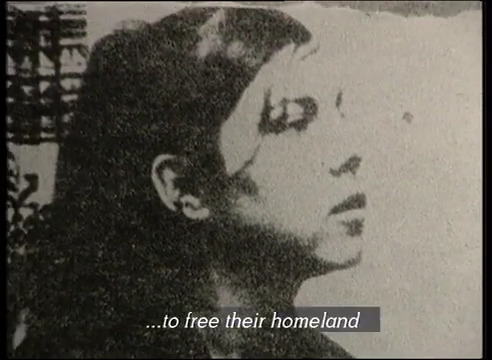
Jamila’s Mirror (1993)
Arab Loutfi
Jamila’s Mirror deals with the memories of Palestinian women guerilla fighters who were involved in military operations during their teen years.
3K notes
·
View notes
Text
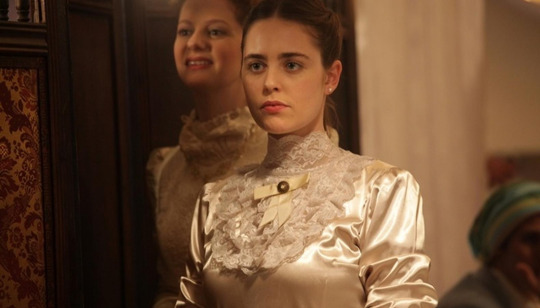

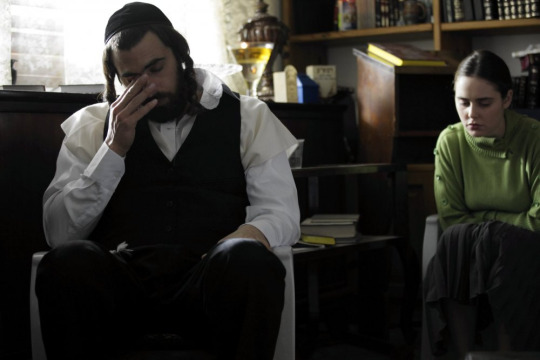
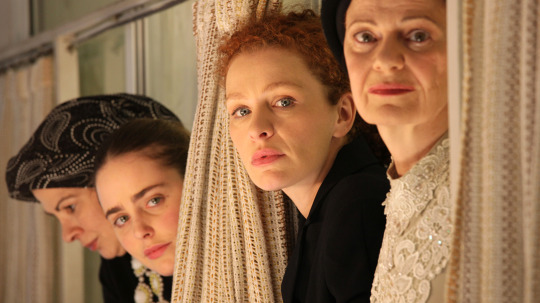
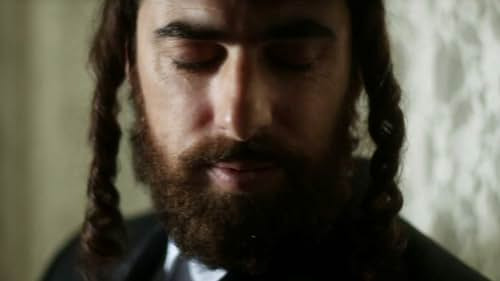
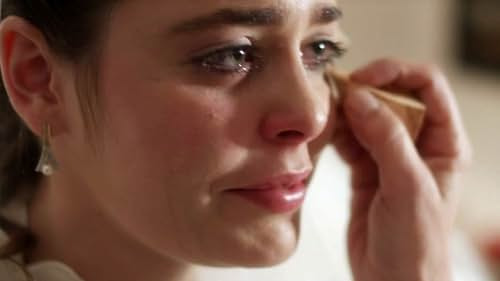
Fill the Void (dir. Rama Burshtein, 2012)
#rama burshtein#hadas yaron#cinema#film stills#movie stills#israeli cinema#middle eastern cinema#women directors#women filmmakers#yiftach klein#actors#films#2010s films#2012 movies#fill the void
54 notes
·
View notes
Text
A group of almost 70 Palestinian filmmakers — including two-time Oscar nominee Hany Abu Assad, acclaimed director Elia Suleiman and recent BAFTA winner Farah Nabulsi — have signed a strongly-worded letter in which they accuse Hollywood of “dehumanising” Palestinians on screen over decades, a factor they assert has helped enable the ongoing devastation in Gaza.
The letter — also signed by the likes of multiple-award winners including Michel Khleifi, Mai Masri, Najwa Najjar and the 22-strong list of directors behind the compilation of shorts “From Ground Zero,” Palestine‘s current submission to the Oscars — also expresses outrage and what it described as the “inhumanity and racism shown by some in the Western entertainment industry towards our people, even during this most difficult of times.”
The letter marks the first collaborative initiative by Palestinian filmmakers since the horrific events of Oct. 7, in which terror group Hamas — which rules Gaza — killed more than 1,200 Israelis and took more than 250 hostage, and the ongoing retaliatory attacks on Gaza by Israel, which have killed more than 40,000 Palestinians (according to the Palestinian Health Authority) and led to a humanitarian crisis in the territory.
Despite its fierce criticism of Hollywood, the letter does thank the National Academy of Television Arts and Sciences for “standing up to pressure and insisting on freedom of expression,” by refusing attempts to disqualify a Gaza-focused documentary from the 2024 Emmy nominations.
The Peabody Award-winning “It’s Bisan From Gaza and I’m Still Alive,” by Palestinian journalist, activist and filmmaker Bisan Owda and chronicling her family’s plight as they flee bombardment of their home in by Israel, is nominated for the News and Documentary Emmys for Outstanding Hard News Feature Story: Short Form. However, there were calls by a U.S.-based pro-Israel group for the nomination to be rescinded, with a letter signed by the likes of Debra Messing, Sherry Lansing, Rick Rosen and Haim Saba accusing Owda of having ties to the Popular Front for the Liberation of Palestine (PFLP), a United States-designated terrorist group.
In response, NATAS president Adam Sharp said that Owda’s nomination would not be rescinded, writing in a letter that the organisation had been “unable to corroborate these reports” of Owda’s alleged involvement and “found no grounds, to date, upon which to overturn the editorial judgment of the independent journalists who reviewed the material.”
See the letter by the Palestinian filmmakers list of signatures below:
We, Palestinian filmmakers, appreciate and thank the National Academy of Television Arts and Sciences (NATAS) for standing up to pressure and insisting on freedom of expression by upholding Bisan Owda’s 2024 News and Documentary Emmy nomination for the documentary, “It’s Bisan From Gaza and I’m Still Alive.”
This film is narrated by the award-winning and inspiring 25-year-old Palestinian journalist, Bisan Owda, who has risked her life to share with the world reports and stories about the resilience, resistance and survival of ordinary Palestinian families in the face of Israel’s ongoing, livestreamed genocide in the occupied Gaza Strip.
Trying to censor Bisan’s voice is only the latest repressive attempt to deny Palestinians the right to reclaim our narrative, share our history, and in this case bring attention to the atrocities our people are facing in the hopes that we can bring an end to them. We well understand the power of image and cinema, and for far too long we have been outraged at the inhumanity and racism shown by some in the Western entertainment industry towards our people, even during this most difficult of times.
Through our films, we have tried to present alternative narratives, depictions and images to reverse the stereotypical, dehumanizing “worthless, disposable beings” image which enables the whitewashing and/or justification of the crimes perpetrated for decades against Palestinians. But why must we always put on our “boxing gloves” to defend our art against ruthless censorship that targets us merely on the basis of our identity, not our creativity?
We wholeheartedly welcomed the nomination of Bisan Owda’s film for an Emmy as an indication that, after so many years of Israel’s apartheid and settler-colonial rule over the Palestinian people, the relentless, decades-old dehumanization of Palestinians on small and big screens in the U.S., in Hollywood in particular, was beginning to give way to a more ethical stance. The censorship attempt against the film, though, was a reality check of sorts. We must still contend with and fiercely challenge the anti-Palestinian and generally anti-Arab racist propaganda that remains all too prevalent in Western entertainment media.
Although we are deeply concerned at how this dehumanization is a danger to our very existence as Palestinians, we are cognizant of how it also puts many racialized communities around the world, including in the West, at risk of a similar fate as the “might makes right” credo prevails.
We call on our international colleagues in the film industry, visionaries for the kind of world we would like to live in, to speak out against this genocide and the erasure, racism and censorship that enable it; to do everything humanly possible to stop and end complicity with this unspeakable horror; and to stand against working with production companies that are deeply complicit in dehumanizing Palestinians, or whitewashing and justifying Israel’s crimes against us.
This has to stop. Now.
Signed:
Michel Khleifi
Mai Masri
Hany Abu Assad
Najwa Najjar
Elia Suleiman
Rashid Masharawi
Farah Nabulsi
Mohammad Bakri
Maha Haj
Mahdi Fleifel
Raed Andoni
Kamal Aljafari
Saleh Bakri
Mohanad Yaqubi
Tarzan Nasser
Arab Nasser
Ossama Bawardi
Rakan Mayasi
Khadija Habashneh
Leila Sansour
Khaled Jarrar
Rula Nasser
May Odeh
Adam Bakri
Iyad Alasttal
Amer Shomali
Carol Mansour
Muna Khalidi
Mohamed Jabaly
Salim abu Jabal
Suha Arraf
Firas Khoury
Randa Nassar
Yasmine Al Massri
Wisam Al Jafari
Ismael El Habbash
Muayad Alayan
Sawsan Asfari
Kamel el Basha
Rozeen Bisharat
Nadia Eliewat
Ward Kayyal
Maryse Gargour
Amer Hlehel
Ziad Bakri
Aws Al-Banna*
Ahmed Al-Danf*
Basil Al-Maqousi*
Mustafa Al-Nabih*
Muhammad Alshareef*
Ala’a Ayob*
Bashar Al-Balbeisi*
Alaa Damo*
Hana Awad*
Ahmad Hassouna*
Mustafa Kallab*
Kareem Satoum*
Mahdi Karirah*
Rabab Khamees*
Khamees Masharawi*
Wissam Moussa*
Tamer Najm*
Nidaa Abu Hasna*
Nidal Damo*
Reema Mahmoud*
E’temad Weshah*
Islam Al Zrieai*
#gaza#palestine#israeli occupation#palestinian media#Palestinian filmmakers#Hollywood#NATAS#fighting Zionism#letter#Variety
0 notes
Text
“I first started noticing the journalists dying on Instagram. I'm a journalist, I'm Arab, and I've reported on war. A big part of my community is other Arab journalists who do the same thing.
And when someone dies, news travels fast. Recently, I pulled up the list that the Committee to Protect Journalists has been keeping and looked at it for the first time. There are 95 journalists and media workers on it as of today.
Almost everyone on it is Palestinian. Scrolling through, I started to get angry. These were the people carrying the burden of documenting this whole war.
Israel is not allowing foreign journalists into Gaza, except on rare occasions with military escorts. These people's names are being buried in a giant list that keeps growing. What I want to do is lift some of them off the list for a moment and give you a glimpse of who they were and the work they made.
I'll start with Sadi Mansour. Sadi was the director of Al-Quds News Network, and he posted a 22-second video on November 18. That was a report from the war, but it also gave me a picture into his marriage.
Sadi's wearing his press vest and looks exhausted. He's explaining that cell service and the Internet keep getting cut off, and it's often impossible to text or call anyone, including his wife. So they've resorted to using handwritten letters to communicate while he's out reporting, sending them back and forth with neighbors or colleagues.
He ends the video with a picture of one of these letters from his wife. In it, she writes,
‘Me and the kids stayed up waiting for you until the morning, and you didn't come home. We were really sad.
I kept telling the kids, Look, he's coming. But you didn't show up. May God forgive you.
Come home tomorrow and eat with us. Do you want me to make you kebab or maybe kapse? Bring your friends with you, it's okay.
And give Azeez the battery to charge. What do you think about me sending you handwritten letters with messenger pigeons from now on? Ha ha ha.
I'm just kidding. I want to curse at you, but we're living in a war. Too bad.
Okay, I love you. Bye.’
A few hours after he shared that letter, Sadie and his co-worker Hassouna Saleem were at Sadie's home, when they were killed by an Israeli air strike that hit his house.
His wife and kids, who weren't there, survived.
Gaza is tiny, and the journalist community is really close. Reading the list, you can see all the connections between people. Like with Brahim Lafi.
Brahim was a photojournalist, one of the first journalists to die. He was killed while reporting on October 7. He was just 21, still new to journalism.
On his Instagram, you can see that in his posts just a few years ago, he was still practicing his photography, taking pictures of coffee cups and flowers. Then he started doing beautiful portraits and action shots. You can really feel him starting to become a journalist.
Clicking around on Instagram, I found a tribute post about Brahim from his co-worker Rushdie Sarraj. In this photo, Brahim staring intently at the back of a camera, his face lit up by the light from the viewfinder. He looks so young.
The caption reads, My assistant is gone. Brahim is gone. Rushdie himself was a beloved journalist and filmmaker.
And I know that because he's also on the list. He was killed just two weeks after Brahim. I read the tribute post to him too.
I saw this over and over again. Journalists posting tributes, who were then killed themselves soon after. And a tribute goes up for them.
And then the pattern continues.
Thank you.
Something else I saw over and over on the list, journalists later in the war who had become aware that they could be making their last reports. They'd say it at the beginning of their videos. And those were the hardest to watch, especially when it was true.
One video like that was posted by Ayat Hadduro. Ayat was a freelance journalist and video blogger. Her videos before the war covered a wide range from what I can tell, interviews about women in politics.
She even appeared in a commercial for ketchup-flavored chips. She clearly liked being in front of the camera. Once the war started, Ayat's pivoted to covering bombings and food shortages.
On November 20, she posted a video report from her home. You can hear the airstrikes hitting very close to where she is. It's scary.
‘This is likely my last video. Today, the occupation forces dropped phosphorus bombs on Beit Lahya area and frightening sound bombs. They dropped letters from the sky, ordering everyone to evacuate.
Everyone ran into the streets in the craziest way. No one knows where to go.
But everyone else has evacuated. They don't know where they're going. The situation is so scary.
What's happening is so tough, and may God have mercy on us.’
She was killed later that day.
Targeting journalists, in case you didn't know, is a war crime. So far, the Committee to Protect Journalists has found that three of the journalists on the list were explicitly targeted by the IDF, the Israeli military. Investigations by the Washington Post and Reuters, Human Rights Watch and the United Nations have also raised serious questions in these three cases.
And the Committee to Protect Journalists is investigating 10 other killings. When we reached out to the IDF for comments, they said, quote, the IDF has never, and will never, deliberately target journalists. That's the answer they always give in these situations.
Meanwhile, dozens of seasoned reporters have fled Gaza. Journalists who worked for Al Jazeera, the BBC, the New York Times, the Washington Post, Reuters, Agence France-Presse. So many media offices were demolished in Israeli airstrikes that the Committee to Protect Journalists stopped counting.
It's not just individual lives that have been destroyed. It's an entire infrastructure.
Thank you.
The name on the list that was hardest for me to look at was Issam Abdullah, because I'd crossed paths with him once. Issam was a Lebanese journalist, a video journalist for Reuters for many, many years. He had just won an award for coverage of Ukraine.
I'm Lebanese and still report there sometimes, and I'd worked with Issam a couple of summers ago. He helped me film a sort of random story in Beirut. I was interviewing this entrepreneur who had started a sperm freezing company after an accident where he spilled a tray of hot coffee on his private area, burning himself.
I know, ridiculous. It was a really silly shoot. Right after we said cut and started to rap, Issam started this whole bit about being in his late 30s, reconsidering his own sperm quality and everything he now realized he was doing to hurt it, and no one could stop laughing.
It was a really good day that felt good to remember and to remember him that way. Issam was killed by the IDF on October 13. His death was one of the three that the Committee to Protect Journalists has identified as a targeted killing.
He was fired upon by an Israeli tank while standing in an empty field on the Lebanon-Israel border with a small group of other journalists. Everyone was wearing press vests with cameras out. They were covering the Hezbollah part of this war.
A few other journalists were injured in the attack, which was captured on video. The IDF says they were responding to firing from Hezbollah, not targeting the journalists. But multiple investigations, including by Reuters, the United Nations, Amnesty International and the AFP, found no evidence of any firing from the location of the journalists before the IDF shot at them.
The journalists in the group and video footage confirmed that there was no military activity near them. I had only met Issam once, barely knew him, but it affected me so much when he died. I know that he understood the risks of his job, but somehow it still felt so random and unfair that he would be struck down like that, following the rules, wearing his press vest and helmet, and a pack of reporters on a sunny day in an open field.
I find myself thinking about him all the time. His last Instagram post was commemorating another journalist, this iconic reporter Shereen Abou Aql who had been killed by the IDF. When I first saw that post in October, I thought how ironic because a week later, Isam also was killed by the IDF.
But then, after spending time reading the list, I realized how common this had become. I still haven't finished going through the list and looking up the people on it. I keep finding things that stick with me, like the funny way this one radio host would cut off a caller who was rambling on for too long.
A tweet from reporter Al-Abdallah that quoted Sylvia Plath. It read, What ceremony of wars can patch the havoc? I'm going to keep going down the list, even though this story is over now.
Just for myself. My own way of bearing witness. Which is, in the end, all that these journalists were trying to do.”
—DANA BALLOUT, The 95. Dana sifts through a very long list—the list of journalists killed in the Israel-Hamas war, and comes back with five small fragments of the lives of the people on it. Dana is a Lebanese-American, Emmy-nominated documentary producer.
#politics#dana ballout#the 95#palestine#israel#war crimes#gaza#committee to protect journalists#🇵🇸#brahim lafi#shereen abou aql#issam abdullah#ayat hadduro#rushdie sarraj#hassouna saleem#sadi mansour
2K notes
·
View notes
Text

The latest questions are centered around Anat Schwartz, an Israeli who co-authored several of the paper’s most widely circulated reports, including the now well-known and scrutinized December 28 article headlined: “‘Screams Without Words’’ How Hamas Weaponized Sexual Violence on Oct. 7.”
Independent researchers scrutinized the online record, and raised serious questions about Schwartz. First, she has apparently never been a reporter but is actually a filmmaker, who the Times suddenly hired in October. You would expect the paper to look for someone with actual journalistic experience, especially for a story as sensitive as this one, written during the fog of war. Surely the paper had enough of its own correspondents on staff who could have been assigned to it.
Next, the researchers found that Schwartz had not hidden her strong feelings online. There are screenshots of her “liking” certain posts that repeated the “40 beheaded baby” hoax, and that endorsed another hysterical post that urged the Israeli army to “turn Gaza into a slaughterhouse,” and called Palestinians “human animals.”
(Just this morning, more evidence emerged online; Schwartz apparently also served in Israeli Military Intelligence.)
Finally, one of her co-authors on two of the reports was Adam Sella, who is her nephew.
Let’s pause here. What would happen if the Times suddenly hired a Palestinian filmmaker with no journalistic background, who had recently publicly “liked” posts that called for “pushing Israeli Jews into the sea,” to co-write several of its most sensitive and contested reports?
[...]
There’s another related example of how the Times has botched the sexual violence story. One of the first Israeli organizations that arrived on the scene of the Hamas attack was Zaka, a volunteer group that recovers dead bodies. On January 15, Times reporter Sheena Frankel wrote a positive profile of the group; she included 3 or 4 sentences of criticism, only to quickly dismiss them. This site had already raised serious doubts about Zaka weeks earlier, pointing out that “the organization’s volunteers have systematically given false testimonies, and continue repeating them to journalists on behalf of the Israel government.” Then, on January 31, the Israeli daily Haaretz published a long investigation, that highlighted “cases of negligence, misinformation and a fundraising campaign that used the dead as props.” Haaretz cited one Zaka report that said a volunteer had seen a murdered pregnant woman, with the baby still attached by the umbilical cord — before concluding that the incident “simply didn’t happen.”
At this stage, there are serious doubts about many aspects of Israel’s overall account about October 7. Only a genuinely independent and impartial investigation might some day get closer to the truth. But meanwhile, at the very least the New York Times must publicly recognize its errors, and assign new, unbiased reporters to try to clean up its mess.
Continue reading
2K notes
·
View notes
Text
We are Jewish artists, filmmakers, writers, and creative professionals who support Jonathan Glazer’s statement from the 2024 Oscars. We were alarmed to see some of our colleagues in the industry mischaracterize and denounce his remarks. Their attacks on Glazer are a dangerous distraction from Israel’s escalating military campaign which has already killed over 32,000 Palestinians in Gaza and brought hundreds of thousands to the brink of starvation. We grieve for all those who have been killed in Palestine and Israel over too many decades, including the 1,200 Israelis killed in the Oct. 7 Hamas attacks and the 253 hostages taken.
[...]
We are proud Jews who denounce the weaponization of Jewish identity and the memory of the Holocaust to justify what many experts in international law, including leading Holocaust scholars, have identified as a “genocide in the making.” We reject the false choice between Jewish safety and Palestinian freedom. We stand with all those calling for a permanent ceasefire, including the safe return of all hostages and the immediate delivery of aid into Gaza, and an end to Israel’s ongoing bombardment of and siege on Gaza.
We honor the memory of the Holocaust by saying: Never again for anyone.
+ this comment from film critic david ehrlich

252 notes
·
View notes
Text
An Appeal to Our Food and Hospitality Community to Take Action Now for Gaza
Dear Industry Friends,
We have come together as chefs, farmers, media makers, business owners, beverage professionals, and food workers from across our industry to call for an immediate ceasefire in Gaza and an end to U.S. support for Israel’s war crimes. We must break the silence around the genocide in Gaza. As of today, more than 7,000 Palestinians have been massacred in less than three weeks. Nearly half of them are children. Over 8,000 bombs have been dropped on Gaza, killing a Palestinian every 5 minutes. After hospitals run out of fuel, the death toll will rise exponentially. Every second we choose to stay silent, without demanding that our government stop arming Israel with billions of our tax dollars, we allow another massacre to take place.
We can prevent this violence by refusing to allow our government to fund and arm Israel’s decades-long military occupation. History has shown us that peace and safety for all in the region cannot come from the violent subjugation of Palestinians. We grieve the loss of all innocent life. However, violence begets violence, and we know this latest eruption did not occur in a vacuum. For 75 years, Palestinians have been killed, imprisoned, tortured, and robbed of their land and homes. In Gaza, 2.2 million people — more than half of whom are children — have been living under an inhumane siege for almost 17 years, and are cut off from the world, without access to water, food, or basic amenities needed to live a dignified and healthy life. For those living in Gaza, the last decade has been a slow genocide.
As cultural stewards in this country, we have the power to counter the dehumanization of Palestinians. Israel has long weaponized food, erasing Palestinian people while claiming their cuisine. Here in the U.S., the appropriation of Palestinian foods as “Israeli” has led to more than Israelis profiting off of Palestinian culture; it is an erasure that has had real implications for Palestinians. It allows us to negate their cultural currency, and turn our attention away with more ease when we see Palestinian death.
We must join our voices with Palestinians pleading for justice and protection right now. The situation is dire, and no amount of media coverage has discouraged Israel from its policy of ethnic cleansing and land theft as the U.S. government continues to protect Israel from global pressure for a ceasefire. We have been called upon by Palestinian civil society to join their struggle for freedom by joining the global movement for divestment and cultural boycott of Israel until it ends its horrific human rights abuses.
We ask our fellow food and beverage community to take a stand against genocide and ethnic cleansing and commit to three actions with us:
Call your congressional representatives to demand an immediate ceasefire and an end to unconditional U.S. funding of Israel.
Divest from products, events, and trips that promote Israel until it dismantles its apartheid system and military occupation.
Invest in events and projects that promote justice for Palestinians, whether connecting to a local organization to learn how to support, or amplify Palestinian voices and support them to share their food and culture on their own terms.
We recognize that this may be difficult given the frightening pressure put on us to remain silent. McCarthyist tactics cannot marginalize and divide us – we know we are not alone as the whole world is rising up against injustice and genocide. Thousands of artists worldwide have publicly endorsed BDS and the cultural boycott of Israel, including musicians, DJs, filmmakers and actors, visual artists, Black artists, Latin American artists, and countless others across all fields and continents. This is in spite of efforts made by Israeli government-linked lobby groups to suppress this solidarity.
“In the end, we will remember not the words of our enemies, but the silence of our friends.”
—Dr. Martin Luther King Jr.
We are all in this industry to affirm life and dignity for everyone. As those who care for others, it is our moral imperative to actively contribute to the care that Palestinians need right now as they struggle to survive and get free. Food and beverage colleagues – it’s time for our community to extend our hospitality and join the movement for a Free Palestine.
Add your name – sign the pledge
363 notes
·
View notes
Text
Jewish American filmmaker Sarah Friedland, winner of the Luigi De Laurentiis Venice Award for Debut Film "Familiar Touch," stands in solidarity with the people of Palestine on the 336th day of genocide in GAZA against 76 years of Israeli occupation.
98 notes
·
View notes
Text
Yuval Abraham is an Israeli journalist and filmmaker who is being called antisemitic and has been sent death threats because he called for end to the Israeli apartheid.
I'm gonna say that again, an Israeli Jewish journalist is being called antisemitic because he's against Isr*el's occupation of Palestine.
"In two days we will go back to a land where we are not equal. I am living under a civilian law, and Basel (Yuval's Palestinian friend and coworker) is living under military law. We live 30 minutes from one another and I have voting rights and Basel does not have voting rights. I am free to move wherever I want in this land, Basel is, like millions of Palestinians, is locked in the occupied West Bank. This situation of apartheid between us, this inequality, it has to end." ~ Yuval Abraham's acceptance speech.
Free Palestine 🇵🇸
#free palestine#no one is free until we are all free#gaza#palestine#ceasefire now#from the river to the sea palestine will be free#palestinians#palestine news#free gaza#gaza strip#rafah#north gaza#yuval abraham
106 notes
·
View notes
Text
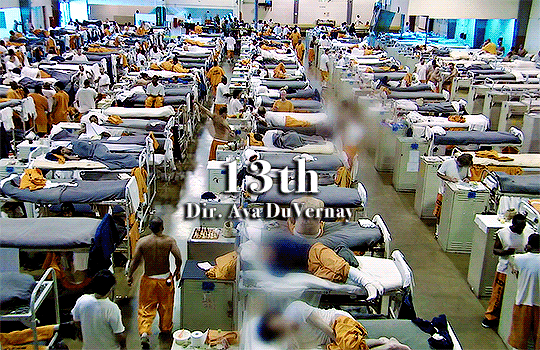
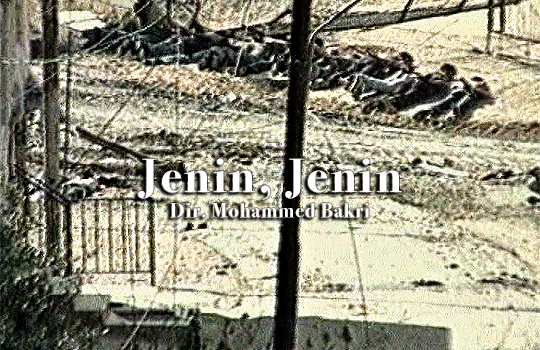


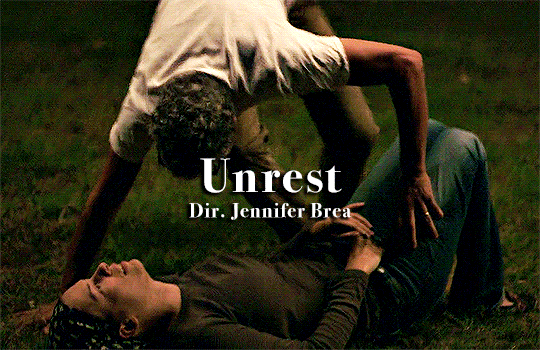
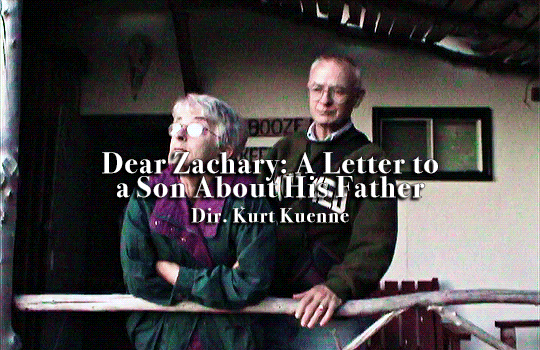
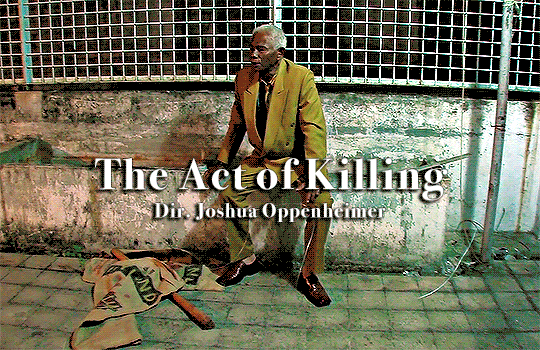
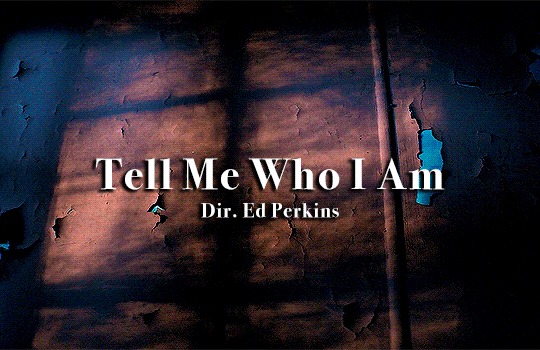
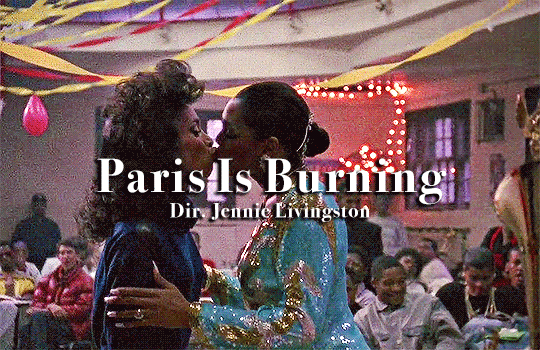
Documentaries
13th (2016) - Filmmaker Ava DuVernay explores the history of racial inequality in the United States, focusing on the fact that the nation's prisons are disproportionately filled with African-Americans.
Jenin, Jenin (2002) - Documentary about the 2002 deadly confrontations between armed Israeli soldiers and Palestinians in the occupied West Bank city of Jenin.
Three Identical Strangers (2018) - Identical triplets become separated at birth and adopted by three different families. Years later, their amazing reunion becomes a global sensation, but it also unearths an unimaginable secret that has radical repercussions.
Titicut Follies (1967) - Filmmaker Frederick Wiseman exposes conditions at a Massachusetts hospital for the criminally insane.
Unrest (2017) - When Harvard Ph.D. student Jennifer Brea is struck down by a fever that leaves her bedridden, she sets out on a virtual journey to document her story as she fights a disease that medicine forgot.
Dear Zachary (2008) - In 2001, 28-year-old Dr. Andrew Bagby is found dead in a park in Pennsylvania. He had been shot by his ex-girlfriend, who then fled to Canada, where she was able to walk free on bail, pregnant with Andrew's child. Andrew's enraged parents campaign to gain custody of the child and convict their son's killer. Filmmaker Kurt Kuenne pairs this story with home movies and interviews with those who knew Andrew, hoping to give his best friend's son an opportunity to discover who his dad was.
The Act of Killing (2012) - Filmmakers expose the horrifying mass executions of accused communists in Indonesia and those who are celebrated in their country for perpetrating the crime.
Tell Me Who I Am (2019) - When Alex loses his memory after a serious motorcycle accident, he trusts his twin Marcus to tell him about his past, but he later discovers that Marcus is hiding a dark family secret.
Paris Is Burning (1990) - This documentary focuses on drag queens living in New York City and their "house" culture, which provides a sense of community and support for the flamboyant and often socially shunned performers. Groups from each house compete in elaborate balls that take cues from the world of fashion. Also touching on issues of racism and poverty, the film features interviews with a number of renowned drag queens, including Willi Ninja, Pepper LaBeija and Dorian Corey.
79 notes
·
View notes
Photo
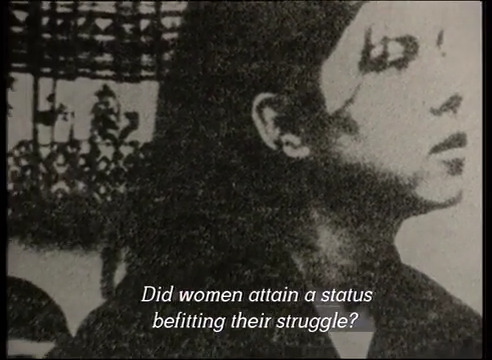



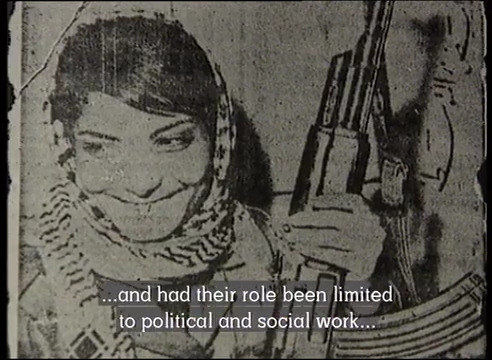
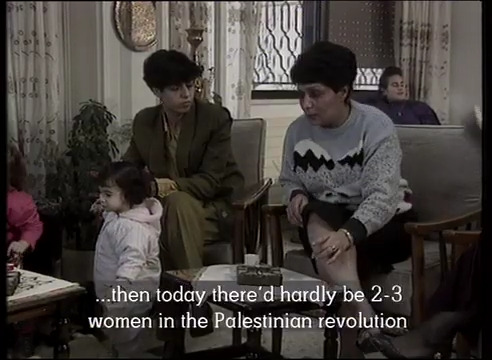



Jamila’s Mirror (1993)
Arab Loutfi
Jamila’s Mirror deals with the memories of Palestinian women guerilla fighters who were involved in military operations during their teen years.
83 notes
·
View notes
Text
Can we please stop downplaying the struggle of one suffering people to show support for another?
My heart breaks at the atrocious news of Israel demolishing Palestine and the suffering of its people. And as a Ukrainian from Kharkiv, which Russia is desperately trying to wipe off the face of the earth, it also breaks my heart to see people claim that what’s happening in Ukraine isn’t enough to call it what it is – a genocide. How many more Ukrainians need to die for these people to acknowledge the reality of Russia’s actions? Are the destroyed Ukrainian cities, towns, and villages not enough? Must our entire country be in flames before they recognize Russia’s actions in Ukraine as genocide?
We, Ukrainians, are often perceived as either too “privileged” because we receive some humanitarian and military support, or not significant enough to garner widespread concern. If the same thing were happening in a Western European country, immediate action would be taken. Yet, we’re just Ukrainians, and it seems we matter less. Additionally, our struggle is constantly compared to that of Palestinians, and we’re criticized for seeking continued support.
Claiming that Ukrainians suffer “less” does nothing to help Palestinians. How is accusing us of trying to live our lives while missiles and drones are headed our way considered activism? There must be a better way to support one oppressed nation without minimizing the struggles of another.
People call out others for going to Starbucks but purchase from companies still operating in Russia. They hold Israelis accountable but welcome Russians, claiming they aren’t responsible for their government’s actions. They shout “Free Palestine” but ask Ukrainians to lay down arms and “make peace with Russia”. They boycott movies and series where actors condemned the Hamas attack on Israel but celebrate Russian filmmakers. They condemn the Israeli army for burning Palestinian books but continue to read Russian literature, claiming it’s beyond politics.
This world’s hypocrisy and attempts to blame victims and justify aggressors are disheartening. Supporting one oppressed nation should not mean diminishing the struggles of another. It’s not obligatory to show support for every oppressed nation in the world, but using one’s suffering to undermine the significance of another’s is harmful.
Keep supporting Palestine, keep donating, and raising your voices for them because their lives matter and they need all the help they can get. But do NOT drag Ukrainians down, deny the genocide we experience daily, or question our right to fight for our existence as a free nation. Do not let Russia destroy us completely. There’s still time, and the least you can do is not give our aggressor any advantage. Stand with justice. Stand with Ukraine. Do better.
#ukraine#stand with ukraine#support ukraine#war in ukraine#ukraine war#war in europe#russian invasion of ukraine#russia is a terrorist state
55 notes
·
View notes
Text
For half a year, “israel” has murdered and maimed the people of Gaza with a weapons arsenal that is 68% supplied by the U.S.A." from Writers Against the War on Gaza, 15/Apr/2024:
caption continued under video
The war criminal Netanyahu has called the IOF the world’s “most moral army” — this three minute video demos the reality. Our officials could spend billions to secure their constituents affordable housing, healthcare, and education.
Instead, they are funneling blood money to the zionist genocidaires, who have spent the past six months engineering famine in northern Gaza and sending entire neighborhoods up in flames. In the words of Aaron Bushnell, “This is what our ruling class has decided will be normal.”
The filmmaker said, “As a Palestinian American, whenever someone speaks to me of Israel, this is what I see. A soulless, murderous, racist, brainwashed society that delights in murdering my people. I spent countless hours sorting through this nightmarish imagery posted by Israelis—and gathered by other Palestinians, allies, and journalists—so that whenever someone speaks to you of Israel, this is what you’ll see too.”
Embargo “israel” now.
#important#human rights#social justice#palestine#free palestine#gaza#free gaza#from the river to the sea palestine will be free#i stand with palestine#rafah#save rafah#israel is committing genocide#israel is a war criminal#israel is evil#israel is a terrorist state#america is a failed state#america is committing genocide
56 notes
·
View notes
Text
Here are 30 ways you can support Palestinians:
Donate to reputable organizations providing humanitarian aid to Palestinians, such as the Palestine Children's Relief Fund (PCRF), Muslim Hands, American Friends Service Committee (AFSC), and UN Relief and Works Agency (UNRWA).[1][4][5]
Advocate for change by writing to elected representatives, signing petitions, and supporting political campaigns promoting peace and justice.[1][4]
Educate yourself on the history and root causes of the Israeli-Palestinian conflict.[1][4]
Support Palestinian businesses and the local economy.[1][4][5]
Attend protests, marches, rallies, and vigils to demonstrate solidarity.[1][4]
Write letters to the editor countering harmful narratives and providing context.[4]
Read and share Palestinian voices and perspectives, such as the anthology "Light in Gaza."[4]
Hold corporations accountable for complicity in human rights violations by divesting or boycotting them.[4]
Join initiatives like AFSC's "Apartheid-Free" campaign to dismantle Israeli apartheid.[4]
Make du'a (supplication) for relief and blessings in your efforts.[1]
Share information on social media to raise awareness.
Volunteer or intern with pro-Palestinian organizations.
Organize educational events, film screenings, or discussions in your community.
Support Palestinian artists, musicians, and cultural events.
Learn the Arabic language and Palestinian dialect.
Travel to Palestine as an activist or on a solidarity trip.
Boycott products made in Israeli settlements in occupied Palestinian territories.
Donate to crowdfunding campaigns supporting Palestinian families and causes.
Sponsor a Palestinian student's education.
Plant olive trees or support Palestinian farmers and agriculture.
Advocate for Palestinian refugees' right of return.
Call for ending the blockade and occupation of Gaza.
Demand corporations divest from the Israeli military-industrial complex.[2]
Support the Boycott, Divestment, Sanctions (BDS) movement.
Amplify Palestinian voices and stories through art, writing, or filmmaking.
Pressure universities to divest from companies complicit in the occupation.
Participate in an annual Palestinian solidarity event like Al-Awda or Israeli Apartheid Week.
Support Palestinian prisoners' rights and call for their release.
Donate blood or join a humanitarian aid convoy to Gaza.
Offer skills like web design, translation, or medical expertise to Palestinian organizations.
The key is taking meaningful action through donations, advocacy, boycotts, education, and amplifying Palestinian voices to promote human rights and a just resolution.
Citations:
[1] https://muslimhands.org.uk/latest/2021/06/how-to-support-palestine-and-gaza-with-charity
[2] https://www.reddit.com/r/EffectiveAltruism/comments/17nbhqf/what_can_realistically_be_done_from_abroad_to/
[3] https://afsc.org/programs/us-palestine-activism-program
[4] https://afsc.org/news/6-ways-you-can-support-palestinians-gaza
[5] https://www.pcrf.net/information-you-should-know/how-to-help-palestine.html
i asked it :how to build keffiyeh factory ?
#free Palestine#Palestine#free Gaza#palestina#free free Palestine#i stand with Palestine#long live Palestine#Palestine will be free#Gaza#Rafah#all eyes on Rafah#all eyes on Palestine#free Palestine 🇵🇸#free Gaza 🇵🇸#from the river to the sea 🇵🇸#free 🍉#Palestine 🍉#🍉free Rafah#🇵🇸Free Rafah#🕊️Free Rafah#🇵🇸 the West Bank#🍉The West Bank#boost#rafah under attack#save rafah#free rafah#the west bank#all eyes on rafah#strike for palestine#rafah
35 notes
·
View notes
Text
In most Israeli media coverage, “it is as if [Palestinian civilians] don’t exist,” Gideon Levy, a reporter for the left-leaning Israeli daily Haaretz, which has covered the plight of Palestinians in Gaza, told the progressive American news program Democracy Now!. On international news networks, “you see Gaza. You see children dying on the dirty floors of the hospitals, bleeding to death. You see the uprooted people, you see the destruction, you see the suffering . . . and the starvation,” Levy said. “In Israel you see only the soldiers, only the hostages.”
Some media analysts have warned that this absence is shaping Israeli public opinion. A poll released by Tel Aviv University’s Peace Index and the Israel Democracy Institute in mid-November showed that a majority of Israeli Jews—57.5%—believed Israeli forces were using insufficient firepower in Gaza, while another 36.6% thought the military was using the correct amount of force, and just 1.8% thought it was using too much. A poll by Tel Aviv University’s Peace Index from mid-January showed that these numbers have held stable, even as the death toll in Gaza has continued to climb, prompting more international calls for Israeli restraint. “I assume that if the media were showing stories about what is happening beyond the border, it would force [the Israeli public] to deal with another aspect of reality,” said Oren Persico, a staff writer at the Israeli media watchdog The Seventh Eye. Rami Younis, a Palestinian filmmaker and journalist, similarly perceived a far-reaching effect. “The entire Israeli population has moved more to the right [since October 7th], and that is mainly because of the media,” he said. “The louder you shout that Gaza must be obliterated, the more likely it is that you’ll get featured on TV panels.”
But to some close observers of the Israeli political landscape, the question of whether the media is molding public opinion or simply reflecting it is not straightforward. “The media is making a choice, but so are Israelis,” said Raviv Drucker, an Israeli political commentator and investigative reporter. “People don’t want to see [Gazans’ suffering] and the media doesn’t want to show it.” This does not necessarily reflect a lack of knowledge about what is happening in Gaza. “This is a state in post-trauma,” he said. “If you stop an Israeli on the street, they know that thousands of children are dying in Gaza. It’s not a lack of understanding; it’s a lack of empathy. An unwillingness to participate in their pain.”
234 notes
·
View notes
Note
Hi
1 love your blog and podcast
2 I’m really enjoying your weekly Palestinian film recs
3. Do you have more recommendations for Arab and Middle Eastern cinema ?
Thank you ☺️
helloooooo, thank you 🥰 I have a whole sideblog which I don't promote enough called @swanasource where I and my co-mod @thatidomagirl frequently post middle eastern/SWANA film and films made by swana filmmakers in the film tag here:
I myself am still on my journey of watching more swana films (and non-english and non-Western films) so I won't claim to be any sort of exhaustive expert. but here are some of my favourites!
Salt of this Sea (2008). Dir. Annemarie Jacir. Palestinian film about a Palestinian-American woman heisting an Israeli bank
The Persian Version (2023). Dir. Maryam Kershavez. Comedy about an Iranian-American lesbian who gets pregnant after a one night stand and so decides to learn more about her family history.
Kedi (2016). A calming and beautiful Turkish documentary about the cats of Istanbul
Ali's Wedding (2017). A rom-com about an Iraqi-Australian Muslim who falls in love with the Lebanese girl from his mosque who's helping him get into med school.
The Man Who Sold His Skin (2020). Tunisian thriller about a syrian refugee who agrees to let his back be tattooed and be part of a living exhibition by a notorious artist so he can get a visa.
Sirens (2020). A documentary about the queer Lebanese all-girl metal band, Slave To Sirens, set around the Beirut explosion.
In Vitro (2019). A short Palestinian sci-fi film about an elderly woman in an underground bunker trying to describe the world before to a young woman who's only ever known the bunker.
Cairo Time (2009). Dir. Ruba Nadda. Look, this film isn't perfect but It's about a white American woman who's husband is a UN worker in Egypt. She goes to visit him in Cairo, but her husband is waylaid so he sends his bestie played by the beautiful Alexander Siddig to take her around Cairo and oh my GOD the romantic tension of this movie keeps me up at night.
Butterflies (2018). One of my fave movies ever. A Turkish comedy about 3 estranged siblings who have to take a chaotic road trip to fulfil their father's last wishes.
78 notes
·
View notes